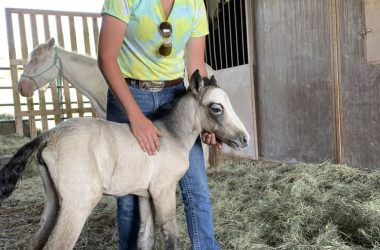RBC I The “worst-case scenario” is not something we like to dwell on. When it happens to us, we’re forced to think about it, of course, but when it happens to someone else? Not so much. And when it happens to someone else and it’s concealed in the rougher folds of society’s fabric? We probably won’t think about it at all.
One such issue is human trafficking, which Jill McConaughy, Glenwood Springs attorney and regional human trafficking specialist for northwest Colorado, acknowledges is a “pretty challenging topic to discuss.”
Human trafficking is human slavery, and it is not well-understood by the general public. Myths abound. The Colorado Human Trafficking Council seeks to raise awareness and provide education, and a local training opportunity was provided by the Rio Blanco County Department of Human Services last week.
County and state employees, mental health professionals, law enforcement professionals, school representatives and others were invited to attend the two and a half hour Zoom conference, which began with a pretest to provide a baseline of the audience’s knowledge. Whether branding or tattoos could signal human trafficking (which is correct), and if most trafficking victims are immigrants (that’s actually false) were two of the questions asked.
Trafficking survivors then presented powerful statements in a short video created by the Office for Victims of Crime. (You can watch it here: https://www.youtube.com/watch?v=YrLWiVJn7Js&feature=emb_logo)
“Traffickers can be just about anyone from any walk of life,” Lieutenant James Fitzgerald of the Seattle Police Department states in the video. Some survivors mention common misconceptions about human trafficking–it doesn’t happen in the U.S. (it does), it’s only immigrants (false), or that it’s all about sex (false.)
Camerron Resener, Human Trafficking Training Coordinator with the state of Colorado, agrees trafficking “can be a really confusing topic,” but it’s a worthwhile conversation nevertheless. Human trafficking is seriously underreported, and victims rarely self-identify, according to Resener. This makes a well-educated public incredibly important, as “community are the eyes and the ears” for reporting and can provide a strong support system for survivors.
DEFINING HUMAN TRAFFICKING
Misconception: human trafficking is all about sex.
Victims trafficked for commercial sex acts represent only 22% of the total number of trafficking victims. Labor trafficking makes up a much larger 68%, and includes forced labor in industries like agriculture, hotels, restaurants, traveling sales, domestic work, events, construction, beauty services and more. The remaining 10% is considered state-imposed trafficking, i.e. military conscription or forced labor.
The training presentation defined human trafficking as such:
• Human trafficking involves the denial of a person’s human right to freedom and basic dignity.
• It is a market-driven, criminal industry driven by demand for labor services and commercial sex acts.
• Victims are forced, defrauded and/or coerced to provide services, labor, or commercial sex acts.
• It exists at the extreme end of a broader spectrum of human exploitation.
Misconception: human traffickers use force to exploit their victims.
Traffickers may use force, fraud or coercion to exploit their victims, but only one must be proven in court, which means case-by-case circumstances can look very different. Not all victims are threatened with physical force. Some may be trafficked by their loved ones. Some may be promised a work visa that is then withheld in exchange for the victim’s labor.
Misconception: human trafficking always involves border crossing. While victims are sometimes moved across borders, “trafficking” is a bit of a misnomer. “Movement itself is not the piece that signifies human trafficking,” Resener said.
Misconception: it doesn’t happen in the U.S. In the U.S., both a destination and source for trafficking, there are foreign and domestic victims. The 2018 Trafficking in Person (TIP) report indicated the U.S. is actually the top country of origin for trafficking victims who are citizens or legal permanent residents of all ages and genders.
THE VICTIMS
According to a report from the International Labor Organization, there are an estimated 20.9 million people forced into labor, which generates an estimated $150 billion in profit, $99 billion of which is from sexual exploitation (even though only 22% of victims are trafficked for commercial sex purposes.)
Misconception: it’s mostly women and children.
The number of victims by gender is almost evenly split, 55% for females and 45% for males; nearly three-quarters, 74%, of victims are adults.
The common denominator for most victims, however, is that they are treated as “invisible” by society. Root causes of human trafficking according to the training presentation include poverty or a lack of opportunity, homelessness, substance abuse, a disability, socioeconomic inequality, residence in a place with an oppressive political regime, displacement due to political conflict or a natural disaster, involvement in child welfare or the juvenile justice system, low self-esteem, prior victimization, dreams of a better life, a market demand for inexpensive products and services, or a demand for commercial sex. Potential vulnerabilities for foreign victims also include a language barrier, immigration status, cultural differences, and political instability.
Homeless, runaway and child-welfare involved youth are overrepresented, as are LGBTQI youth. In many cases, youth are especially vulnerable when traffickers offer a sense of community or security or provide basic necessities like food and shelter.
THE TRAFFICKERS
Misconception: traffickers are mostly large crime syndicates.
It’s not always “the mafia,” Resener cautions. Individuals, family or intimate partners and small criminal operations take part in the trafficking trade, along with large and small businesses and organized crime syndicates.
In many cases, the cycle begins with a series of traumatic events experienced by the victim, leaving them vulnerable to recruitment tactics, which can range from false job advertisements posted on the web or social media, a promise of legal status, or familial or intimate partner recruitment.
Once trapped, traffickers use various methods to control the victim. The training lists economic abuse (such as debt bondage), withholding of basic needs (this is most common with minors), controlled drug use that could lead to dependency, physical or sexual assault, psychological manipulation, isolation, controlled movement, or monitoring, false promises, document confiscation, or threats against the victim or their family and friends.
WHAT ABOUT RBC?
Misconception: it won’t happen here.
There are no reported cases of trafficking in Rio Blanco County, but Resener cautions against a false sense of security. “In reality it could just be a resourcing issue. We know in Moffat County we have cases of human trafficking, it’s just that no one is calling from there.”
“There is not any one single factor that will help you determine a case of human trafficking,” McConaughy said, but there are a variety of indicators to watch for if you’re concerned someone may be a victim of human trafficking.
Discrepancies in a person’s story, such as saying they’re older than they look, claiming they’re “just visiting” and don’t have a home address, don’t know which city they are in, are unfamiliar with the people they are with, scripted or canned responses to questions, or the presence of an overly controlling “friend,” “partner” or “boss” in a victim’s story.
Physically, there may be injuries or signs of physical or sexual abuse, bruises, joint issues, signs of branding (tattoos–particulary odd or derogatory tattoos, scars, cigarette burns), signs of malnourisment and serious dental issues, signs of drug or alcohol dependency, hearing loss from head trauma, somatic signs of stress (headaches, stomach issues) and bald patches or missing hair.
Emotionally, the victim may be fearful, anxious, depressed, submissive, tense or nervous. They may have low self-esteem and feel excessive guilt, shame or embarrassment about their situation. They may blame themselves for getting into the situation, or minimize the level of violence they have experienced. They may disassociate entirely, or be hostile and uncooperative. Some victims have thoughts of or attempt suicide.
Other possible indicators listed in the training include someone else having the potential victim’s identification documents, a third party who insists on interpreting, or frequently calling or texting someone who is not present. In the digital age, many traffickers track their victims’ movements via location services on cell phones.
WHAT CAN YOU DO?
“A demand for services is at the core of everything,” Resener says. “It’s just a matter of making sure people are equitably paid–fair trade labels, rights, human rights in general. These are all things we can start to look at that are at the root of it.”
“There are numerous everyday products tainted by human trafficking,” McConaughy added.
• The training provides the following action steps.
• Be a conscious consumer.
• Get involved.
• Start believing.
• Continue learning.
• See it, report it.
To report suspected cases of human trafficking, you can:
• Call the National Human Trafficking Hotline at (888)373-7888 or text HELP or INFO to 233733 (BEFREE)
• Call the Colorado Network to End Human Trafficking State Hotline at (866)455-5075.
• For minors, call the Colorado Department of Human Services Child Abuse Hotline at 1(844)CO-4-KIDS.
• You can learn more about human trafficking and how you can help victims at https://ovc.ojp.gov/program/human-trafficking/overview or https://sites.google.com/state.co.us/human-trafficking-council
• Find other resources at https://www.colorado.gov/pacific/cssrc/human-trafficking
By CAITLIN WALKER | [email protected]





















Pingback: #minorsextrafficking | Human trafficking myths and misconceptions | Rio Blanco Herald Times | Parent Security Online